Wo/men with Movie Cameras
The turn of the millennium has witnessed a pivotal point in cultural history, similar to the invention of printing. While then the privileged caste of literate men ended, now the closed guild of motion picture makers came to an end. Today anybody can make a film, can document his/her own or somebody else's life for private or common use, and, thanks to the expansion of the worldwide web just after the spread of small cameras, can make them widely public. The shocking footage in the evening news do not come from professional television crews any longer but from enthusiastic amateurs, who happen to be in the right place at the right time: the terrorist attacks on the twin towers, the brutal beating of Afro-American Rodney King by the police leading to a ghetto uprising, the tragic accident of Hungarian students on the Delaware river, the crash landing of a Jumbo Jet in the Hudson, the red sludge disaster in Kolontár – and many more including one of the earliest cases, the murder of President Kennedy, the most authentic document of which we have is an 8 mm footage made by an on-looker.
With everybody documenting, is there then documentary film in the traditional sense of the word? Well, just as the end of literacy privilege did not lead to the demise of high literature, the mass use of cameras will certainly not cause the death of creative documentary films. Anyone can create an important and valuable film document, it is only a matter of being there and then. And let's not underestimate this genre as it will give future generations an endless motion picture diary. However, no one makes a good documentary film by chance. Because a good documentary is not just a matter of recording events; it conveys causes and consequences, and the human drama behind tragic or astonishing events. The real documentary film is the result of a conceptual and – let us not be afraid of the word – artistic design and form. It is based on editing, composition, sensitivity towards reality and people. In this sense it is no different from fiction film. In the documentary genre, however, what is needed besides empathy and talent is also luck. Creativity, restrained by facts, works only to a very limited degree. The documentary filmmaker, unlike the fiction film maker, always has to consider his/her stubborn co-author: reality. If the filmmaker is uninformed, insensitive or biased, facts will oppose and contradict him/her. But should he/she be an astute viewer of what he/she sees, reality will be partner, ready to tell its secrets.
György Báron
Curator of the Hungarian Program
Hungarian Panorama
Anna Kis & Viktor Oszkár Nagy & Klára Trencsényi / 2009 / Hungary / 78'
3 love affairs: virtual relationship, cultural differences, and immigration issues. Cultural harmonies and (dis)harmonies in Hungary.
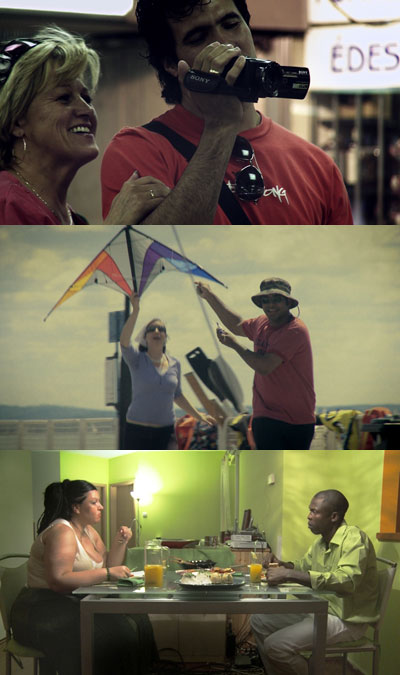
Anna Kis / Hungary / 2009 / 26 min / Hungarian, English
Zsuzsa and Mubarak are two completely different personalities and the pitfalls of acceptance, adaptation and communication challenge the very core of their relationship. Cultural (dis)harmonies in Hungary.
Bernadett & Sanju
Viktor Oszkár Nagy / Hungary / 2009 / 26 min / Hungarian, English, Malajalam
A story about love online and a bold marriage that connects three continents. Is a two-month-long online "relationship" enough to make sure he is Mr. Right?
Elena & Leo
Klára Trencsényi / Hungary / 2009 / 26 min / Hungarian, Spanish
Elena is 20 years older than her husband. Age difference however is the least of their problems. Prejudice, bureaucracy and immigration issues pose the real threat to their relationship.
producer: Marcell Gerő, Sára László
editor: Bernadett Tuza-Ritter, Anna Kis, Divinyi Gábor
camera: Kiss Rudolf Péter, Gergő Somogyvári, Klára Trencsényi, Róbert Maly
sound: János Csáki, Rudolf Várhegyi, Peter Almásy, Ádám Várhegyi, Tamás Dévényi, Tamás Csaba
production info:
Campfilm Kft.
Károly krt. 3/c
1075 Budapest, Hungary
office@campfilm.eu
tel.: +36 20 992 2655
selected filmography:
Anna Kis:
Gyógyító interakciók (2008) / Egy kis jó (2007) / Együtt utazó nagykorú hozzátartozó (2006) / Kedd (2005) / Kő hull apró kútba (2004)
Viktor Oszkár Nagy:
Apaföld (2009) / Hajónapló (2009) / A vizsga (2006) / Öreg fa (Dobos Tamással) (2006) / A tárca (2005)
Klára Trencsényi:
Madarak útján (with Vlad Năumescu) (2009) / Az esély (2007)
Katalin Petényi & Barna Kabay / Hungary / 2009 / 93'
Clerics and communism: poignant stories of the victims and the servants of the regime in Hungary.
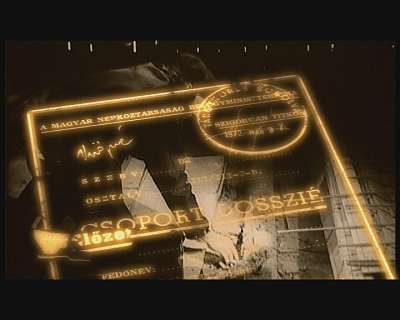
For nearly half century after WWII the communist dictatorship persecuted religious institutions in Hungary. Hundreds of innocent priests and monks were imprisoned; others were drawn into the network as agents of the State Security Services, whose reports put their companions at the mercy of the authorities. Through moving, cathartic fates, Confessors & Traitors evokes the past and the lives of people who became victims or collaborators of the dictatorial regime. Reports of state security agents, conversations tapped by the secret services as well as newsreels, photo montages, diaries, agents' reports, and personal accounts bear witness to the persecutions of the post-war years in Hungary.
producer: Barna Kabay
editor: Beáta Eszlári
camera: Péter Jakura
sound: Ferenc Gerdai, Klaus Wendt
production info:
Média Centrum Kft.
Bem rakpart 50.
1027 Budapest, Hungary
info@mediacentrum.film.hu
tel.: + 36 1 212 2246
filmography:
A Városligeti fasortól a Milánói Scalaig (2007) / A közvetítő (2005) / A Black Rose vár titka (2003) / Meseautó (2000) / Hippolyt (1999) / In Memoriam Gyöngyössy Imre (1997) / Exodus (1995) / Európa messze van (1994) / Holtak szabadsága (1992) / Száműzöttek (Gyöngyössy Imrével) (1991)

Antónia Mészáros / Hungary / 2009 / 52'
Separated from his family at three and brought up in a state orphanage, Árpád Bogdán goes on a personal journey to uncover his past and find out why he could not grow up with his family.
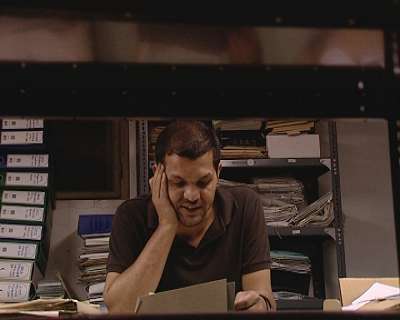
producer: Antónia Mészáros, Ádám Tősér
editor: Ádám Tősér
camera: Dávid Szepesi
sound: János Mazura
music: Membran: Boldog új élet
production info:
Studio 42/B
Csukló u. 6/B
1118 Budapest, Hungary
toseradam@gmail.com
tel.: +36 20 446 5026
filmography:
Sötétség a falu szélén (2009) / Cigány gyökereim nyomában (2008)
http://videa.hu/videok/film-animacio/megtagadva-bogdan-arpad-meszaros-antonia-0fwj94NOGQFwYNAx
Eszter Cseke / Hungary / 2009 / 22'
A modern fairy tale about bachelors in a remote village in Romania, where there is only one girl left in the village: Elena.
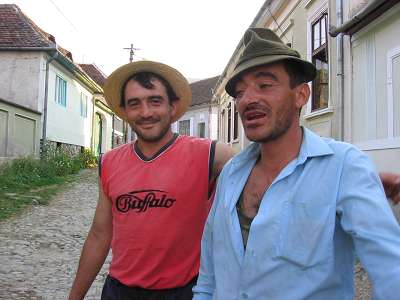
producer: Dan Nuţu
editor: Levente Pap, Jelena Maksimovic
camera: Emese Ambrus, Edi Schneider, Dario Pikulic
sound: Jelena Maksimovic
production info:
Aristoteles Workshop
Városligeti fasor 38. II./57.
1068 Budapest, Hungary
tel.: +36 1 413 1269
dan@aristoteles.org
filmography:
On the Spot: Svalbard, Izrael, Etiópia, Afganisztián, Irán, Nepál, Burma, Bolívia (2009) / Wim Wenders (S. Takács Andrással) (2008) / Mesék Libanonból (2008) / A csornai Alain Delon (2007)

István Nagy / Hungary / 2009 / 54'
Peti and Robi are juvenile offenders in Borsod County, Hungary. Can an institution help where parenting has failed?
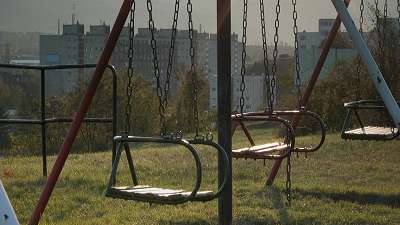
producer: Gyula Gulyás
editor: István Nagy
camera: Isván Nagy, László Batta, Elemér Szabó
sound: István Nagy
music: Tamás Károly
production info:
Kunt Ernő Képíró Műhely Egyesület
Katowice 47. 4/4.
3526 Miskolc, Hungary
kepiro.muhely@gmail.com
tel.: +36 20 823 0964
filmography:
Hibák sulykolása – Serfőző Simon portréja (Ruszkai Nórával) (2006) / Kibomlott kéve (Ruszkai Nórával) (2004) / Micro Techo (2003)

Ákos Zámborszki / Hungary / 2010 / 88'
A 20 year-old traveling circus merrily tours European villages — vanishing nomads of the 21st century.
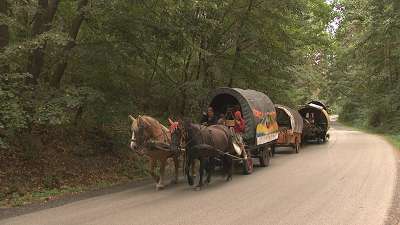
producer: Ákos Zámborszki
editor: Nora Kovács, Péter Moór
camera: Gábor Halázs, Gyula Velez, Ákos Zámborszki
sound: Nóra Kovács
music: Circo Soluna
production info:
Golden Root Film Kft.
Romer Floris u. 34.
1024 Budapest, Hungary
tel.: + 36 20 335 4365
goldenrootfilm@gmail.com
http://goldenrootfilm.hu/cikk/8/utolso_eloadas1.html
Mária Takács / Hungary / 2009 / 90'
Eleven lesbian women talk about coming to terms with their sexuality in socialist Hungary.
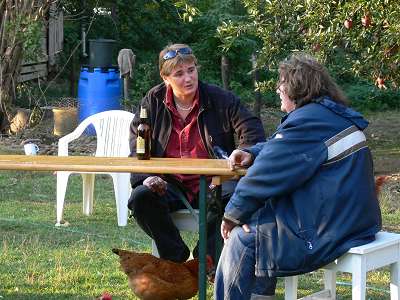
producer: János Vészi
editor: Éva Palotai
camera: Klára Trencsényi
sound: József Pótári, Péter Almásy
production info:
Fórum Film Alapítvány
Róna u. 174.
1145 Budapest, Hungary
tel.: +36 1 251 5666 / 608
forumfilm@invitel.hu
www.eltitkoltevek.hu
filmography:
Akadályverseny (Németh Gábor Péterrel) (2010) / A Fásli, a zokni és a szőr (2006) / Sajtok sajtja (2005) / Egész Narancs (2005) / Eklektika tánciskola (2005)

László Csáki / Hungary / 2010 / 27'
An intimate insight to the microcosm of people living in cellar houses on the hills of Avas in Miskolc, Hungary.
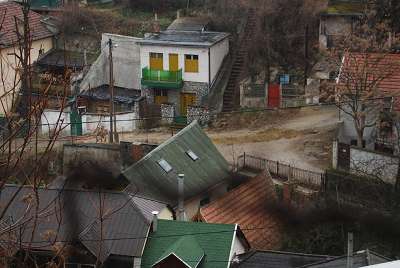
editor: Deszimira Georgiev
camera: Árpád Horváth
sound: Balázs Pejkó
music: Balázs Pejkó
production info:
Laokoon Filmgroup
Balzac u. 37.
1136 Budapest, Hungary
tel.: +36 1 354 0491
office@laokoonfilm.hu
selected filmography:
Idegen szokás (2008) / A hangya és a tücsök (2007) / Egerszalók (Pálfi Szabolccsal) (2005) / Fluxus hajfény (2004) / A kő (Pálfi Szabolccsal) (2003) / Napok, melyeknek értelmet adott a félelem (2002) / 6 nap (Maráczy Manuelával) (1998) / Piknik (1997) / Emulzió kutya (1996)
Artin Tóth / Hungary / 2009 / 60'
Three people whose life fell to pieces parallel with the fall of the former Yugoslavia. They have recovered, they say, lamenting over a beer. There is peace.
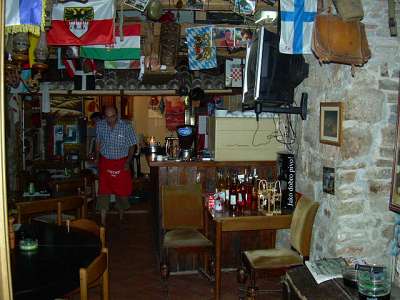
producer: Miklós Szederkényi
editor: Artin Tóth
camera: Arthur Bálint, Artin Tóth
sound: Vince Kapcsos
music: Element of Crime
production info:
Dunatáj Alapívány
Mészáros u. 48-54.
1016 Budapest, Hungary
dunataj@gmail.com
tel.: +36 1 355 8327
filmography:
Háttéremberek (2007) / Érintettek 2. (2006) / Érintettek (2005) / Este jó, este jó (2004) / Magdafilm (2003) / így szültünk mi (2001) / Peace Corp (1996) / Ahogy a növények szeretnek (1990)
